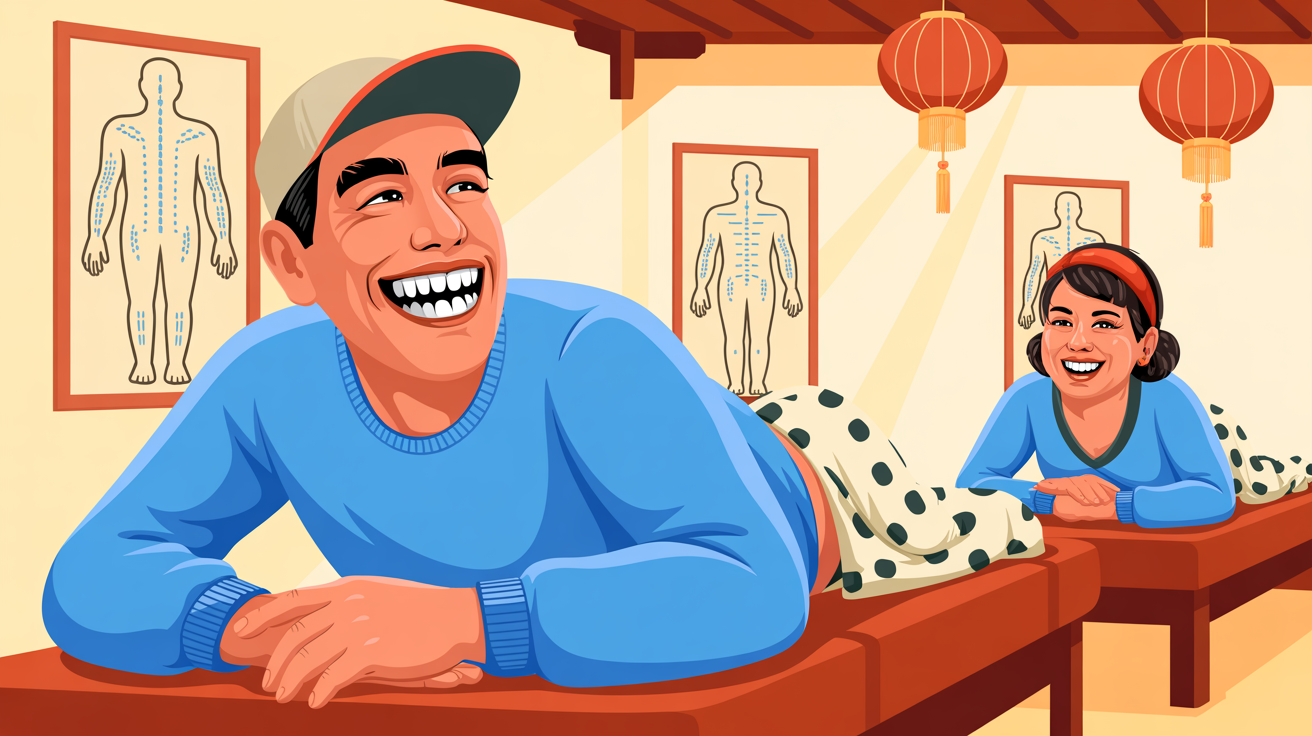Check requirements for Asia's Retirement Visas
Understanding Traditional Chinese Medicine (TCM): An Introduction for Westerners
TCM without the mystic
USEFUL MEDICAL KNOWLEDGE
7/21/20254 min read
Traditional Chinese Medicine (TCM) offers a holistic approach to health and wellness that has been refined over thousands of years. While its concepts may initially seem unfamiliar to those accustomed to Western medicine, understanding its core principles can unlock a new perspective on maintaining well-being.
What is TCM?
TCM is a comprehensive medical system that views the body as an interconnected whole, where physical, emotional, and spiritual aspects are intrinsically linked. Unlike Western medicine, which often focuses on treating specific symptoms or diseases, TCM aims to identify and address imbalances within the body to restore harmony and promote self-healing. This ancient practice is rooted in careful observation and a deep understanding of natural laws and the human body's relationship with its environment.
The Foundational Elements of TCM
To grasp TCM, it's essential to understand its foundational elements:
Qi (Life Force Energy): Pronounced "chee," Qi is the vital life force or energy that flows through everything in the universe, including our bodies. In TCM, Qi circulates through specific pathways called meridians, which are like invisible highways connecting our organs and body parts. When Qi flows smoothly and abundantly, we experience health; blockages or deficiencies in Qi can lead to illness. Think of it like electricity powering a house – when the flow is consistent, everything works, but interruptions cause problems.
Yin and Yang (Dynamic Balance): Yin and Yang are two complementary and opposing forces that exist in everything. They are not absolute but rather relative states that are constantly in flux.
Yin is associated with coolness, darkness, rest, femininity, and inwardness.
Yang is associated with warmth, light, activity, masculinity, and outwardness.
In a healthy body, Yin and Yang are in a dynamic balance. An imbalance, such as too much Yin (e.g., feeling cold, sluggish) or too much Yang (e.g., inflammation, restlessness), can lead to health issues. TCM aims to restore this balance.
The Five Elements (Wu Xing): The Five Elements – Wood, Fire, Earth, Metal, and Water – are a sophisticated framework used in TCM to categorize and understand the relationships between different aspects of nature and the human body. Each element is associated with specific organs, emotions, seasons, colors, and tastes.
Wood: Associated with the liver and gallbladder, anger, spring, and growth.
Fire: Associated with the heart and small intestine, joy, summer, and passion.
Earth: Associated with the spleen and stomach, worry, late summer, and nourishment.
Metal: Associated with the lungs and large intestine, grief, autumn, and structure.
Water: Associated with the kidneys and bladder, fear, winter, and wisdom. Understanding these interconnections helps TCM practitioners diagnose imbalances and formulate treatment plans that address the root cause of a condition rather than just the symptoms. For example, if someone has digestive issues (Earth element), a TCM doctor might also consider the health of their Liver (Wood element) because Wood can overact on Earth.
How TCM Differs from Western Medicine
While Western medicine often excels in acute care, emergency situations, and surgical interventions, TCM offers a powerful alternative and complementary approach, particularly for chronic conditions and preventative health.
Holistic vs. Specific: Western medicine often isolates diseases and treats them specifically, while TCM looks at the entire individual and their overall energetic balance.
Preventative Focus: TCM places a strong emphasis on preventing illness by maintaining balance and harmony within the body before symptoms even appear.
Personalized Treatment: TCM treatments are highly individualized. Two people with the same Western diagnosis might receive different TCM treatments because their underlying energetic imbalances are unique.
Common TCM Practices
TCM utilizes various modalities to restore balance, including:
Acupuncture: Involves inserting thin needles into specific points along the meridians to stimulate Qi flow and promote healing.
Herbal Medicine: Uses customized formulations of natural herbs to address imbalances and support organ function.
Dietary Therapy: Emphasizes specific foods and eating habits to nourish the body and rebalance its energetic state.
Tui Na (Massage): A form of therapeutic massage that uses various techniques to stimulate acupoints and meridians.
Cupping and Gua Sha: Techniques that involve creating suction on the skin or scraping the skin to promote blood circulation and release stagnation.
Tai Chi and Qigong: Gentle mind-body exercises that combine slow movements, deep breathing, and meditation to cultivate and balance Qi.
Where to Seek TCM Treatments
If you're interested in exploring TCM treatments, it's essential to find qualified practitioners. In many Western countries, you can find licensed acupuncturists, herbalists, and TCM doctors who have undergone extensive training. Look for practitioners who are certified by reputable organizations in your region. Many integrative health clinics now also offer TCM services alongside Western medical treatments, providing a bridge between the two approaches. Online directories, referrals from trusted friends, or your Western doctor (if they have an understanding of integrative medicine) can be good starting points for finding a suitable practitioner.
Embracing a Broader Perspective
For Westerners, understanding TCM can broaden their perspective on health and provide additional tools for well-being. It encourages listening to your body's subtle signals and recognizing the profound connection between your internal state and the external world. By exploring the principles of Qi, Yin and Yang, and the Five Elements, you can begin to unlock a deeper understanding of your own health journey and embrace a more vibrant and fulfilling life.
Do contact us if you want to plan a comprehensive TCM checkup in Singapore or Malaysia. While Thailand do have TCM clinics as well, they are not known to have comprehensive TCM practices.
Disclaimer: This article is for informational purposes only and is not a substitute for professional medical advice, diagnosis, or treatment. Always seek the advice of a qualified healthcare professional with any questions you may have regarding a medical condition.


Address
Blk 8 Cantonment Close
SIngapore